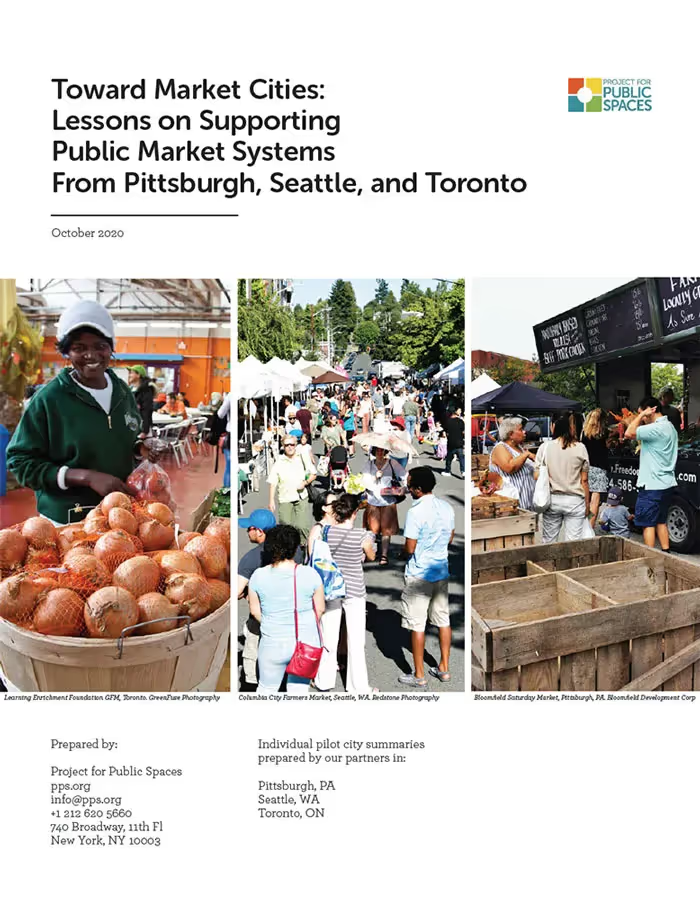A biweekly newsletter with public space news, resources, and opportunities.
A curated dispatch on all things public markets plus the latest announcements from the Market Cities Program.

Public markets systems in North America are both agile and fragile. When the coronavirus pandemic caused widespread stay-at-home orders and business closures, many markets across the continent stayed open, continuing to safely provide fresh and healthy food to residents as supply chains were strained and serve as an economic lifeline to farmers and other producers. This contribution to the resilience of our communities often took place despite limited, uncoordinated support from all levels of government.
It was in this extreme context that the Market Cities Initiative at Project for Public Spaces undertook this research effort to kickstart citywide market strategies in three North American cities—Seattle, Washington, and Pittsburgh, Pennsylvania, in the United States, and Toronto, Ontario, Canada. With support from The Anne T. and Robert M. Bass Foundation, Project for Public Spaces provided each city with pro bono technical assistance and a small planning grant to audit each city’s existing market system, identify challenges and opportunities, and convene a broad group of stakeholders to advocate for new policy and governance structures.
This report includes background on the Market Cities Initiative and its research efforts to date, summaries of each local partner’s findings and recommendations, and broad takeaways for other cities looking to strengthen their market systems or leading their own Market City process.
View the interactive maps included in the report: Pittsburgh, Seattle, and Toronto.